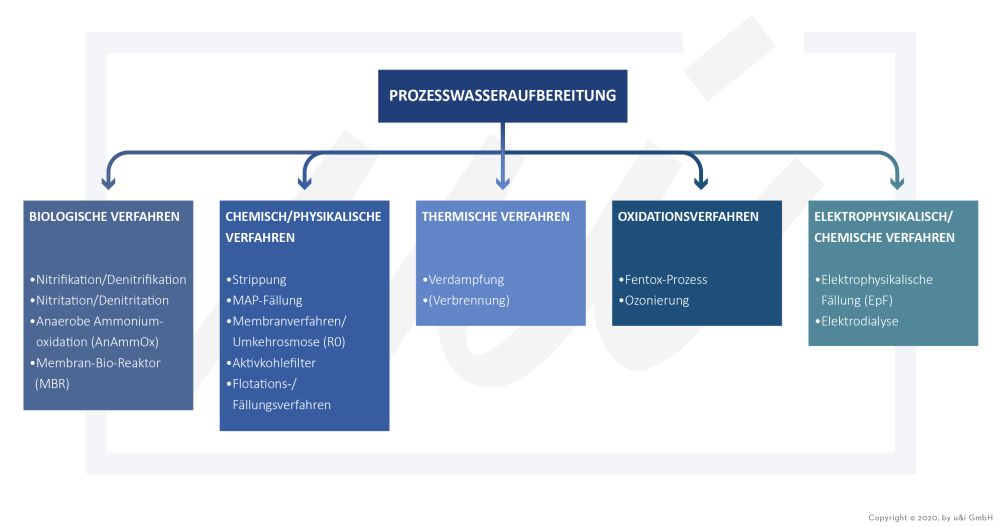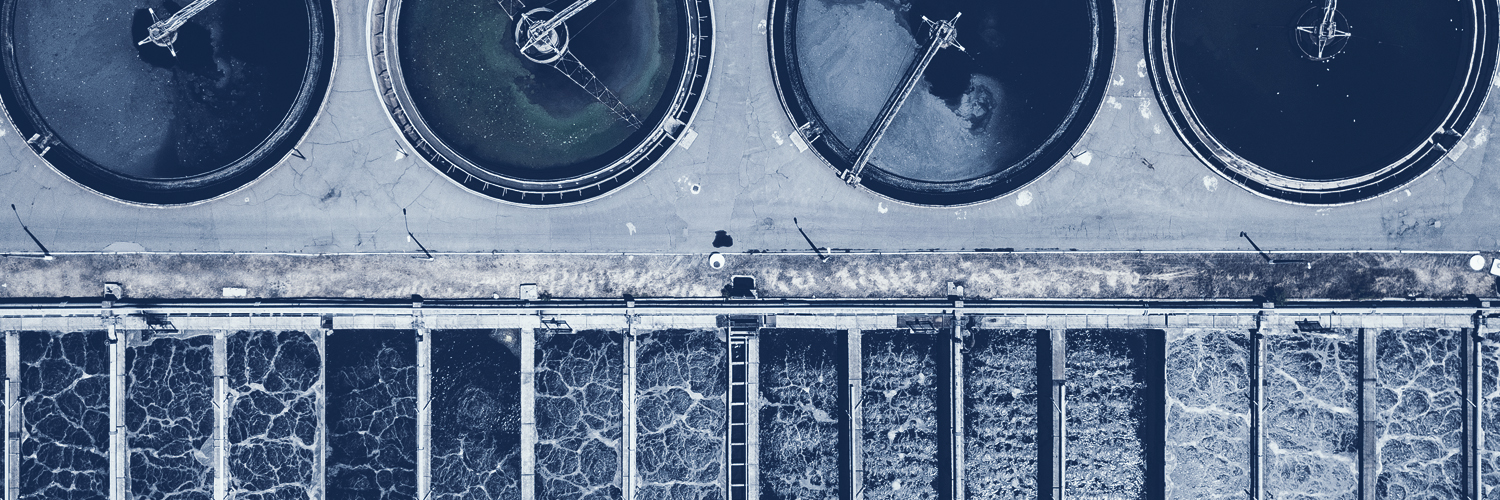Process Water Treatment
Waste water - a generic term for water that is discharged from various sources via building structures.
Many technical plants produce some form of wastewater (e.g. process water, condensate or dirty water). This is often so heavily polluted that it cannot be discharged either directly or indirectly without suitable treatment. An upstream treatment is also often required for internal use of the water in the plant.
A current example from practice:
In the course of the construction of thermal plants for sewage sludge treatment (away from sewage treatment plant sites) the treatment of vapour condensates is of great importance. During the drying of sewage sludge, so-called vapours are produced. Ideally, these consist only of water vapour, which is expelled from the sewage sludge during the drying process. In reality, however, depending on the drying parameters and the composition of the sewage sludge, the vapours also contain volatile organic components which are expelled when the sludge is heated.
Since in most cases a condensation unit is installed downstream of the sewage sludge drying process for energy reasons, many of the components expelled from the sewage sludge are subsequently contained in the condensate, the vapour condensate. This cannot be discharged without appropriate treatment, as the ammonium concentration and chemical oxygen demand (COD) in particular exceed the limit values. In order to comply with the local discharge conditions, treatment of the vapour condensate is necessary.
However, even without condensation, the vapours often pose a challenge, as they cannot be discharged without suitable treatment.

Of course we support you with your projects.
Please feel free to contact us.
Copyright © 2026 - umwelttechnik & ingenieure GmbH - All rights reserved.



